The burgeoning trend of natural skincare, featuring homemade face masks, coconut oil, apple cider vinegar, and other “organic” remedies, has swept the beauty industry, promising glowing, blemish-free skin.
This wave of interest in natural and organic skincare products is largely driven by the desire to avoid the “bad chemicals” and achieve a radiant complexion.
However, not all that glitters is gold.
While going all-natural might seem cost-worthy and appealing, it’s important to approach these trends with caution.
Some of these touted remedies may not be as beneficial as they seem, and others could even harm your skin.
Therefore, this article, inspired by the rise of DIY skincare recipes on Pinterest, aims to highlight skincare trends you need to avoid for the sake of your skin’s health.
Here are seven terrible skincare trends that everyone needs to avoid:
- Using Coconut Oil As a Moisturizer.
- Treating Acne With Apple Cider Vinegar.
- Using Baking Soda to Get Rid of Blackheads.
- Using Oils for Hydration.
- Using Essential Oils to Treat Acne.
- Experimenting With Homemade Masks.
- Using Scrubs For an Instant Glow.
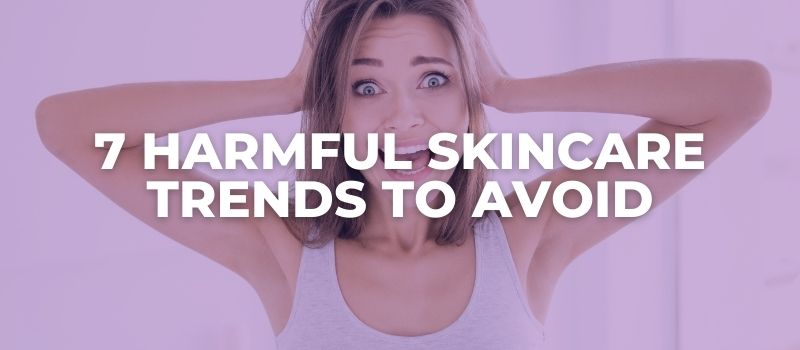
Coconut Oil For Moisturizing
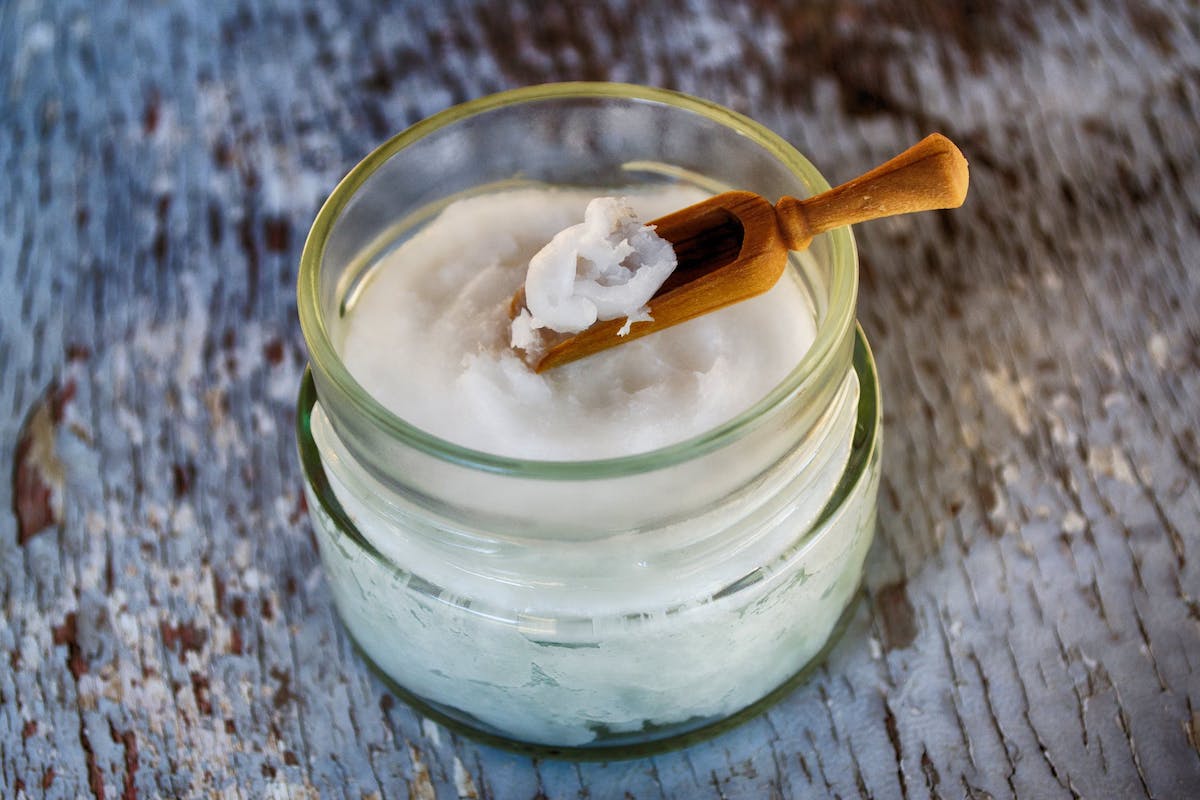
While coconut oil is often hailed as a natural solution for hydrating the skin and preventing trans-epidermal moisture loss, it can actually be counterproductive for many skin types.
First of all, coconut oil doesn’t hydrate the skin due to its occlusive nature that causes it to sit on the skin’s surface, creating a barrier that can trap heat, dirt, and various impurities, instead of penetrating into the skin and delivering hydration throughout the epidermal layers.
This could theoretically help prevent moisture from evaporating and keep the skin plump and hydrated; however, if the skin is already dehydrated and there’s no moisture left to evaporate, coconut oil doesn’t stop anything from escaping when there is nothing from the inside that can escape.
Additionally, coconut oil is particularly problematic for those with oily and acne-prone skin, as, by creating an occlusive barrier on the skin’s surface, it prevents the natural oil from flowing through the pores and to the skin’s surface.
This will cause our natural oil to remain stuck inside the pores, where it will harden and form a plug that attracts bacteria, and eventually leads to increased breakouts and inflammation.
Furthermore, coconut oil contains a high level of saturated fats, particularly lauric acid, which has been shown to cause irritation on sensitive skin, as well as mucous membranes, especially when applied to the skin.
Finally, as I already mentioned, coconut oil can trap heat, especially when exposed to sunshine, which can lead to overheating of the skin and exacerbate conditions like rosacea, where heat is a known trigger for flare-ups.
Moreover, the trapped heat can also cause excessive sweating beneath the layer of oil.
As a result, the sweat mixed with the natural oils and any trapped dirt or impurities can create an ideal environment for bacteria and fungi to thrive, leading to various skin issues such as acne, fungal infections, or even heat rashes.
Therefore, with no real skin benefits and a few potential harms, using coconut oil as a moisturizer is definitely a major skincare trend you should avoid.
Apple Cider Vinegar For Acne
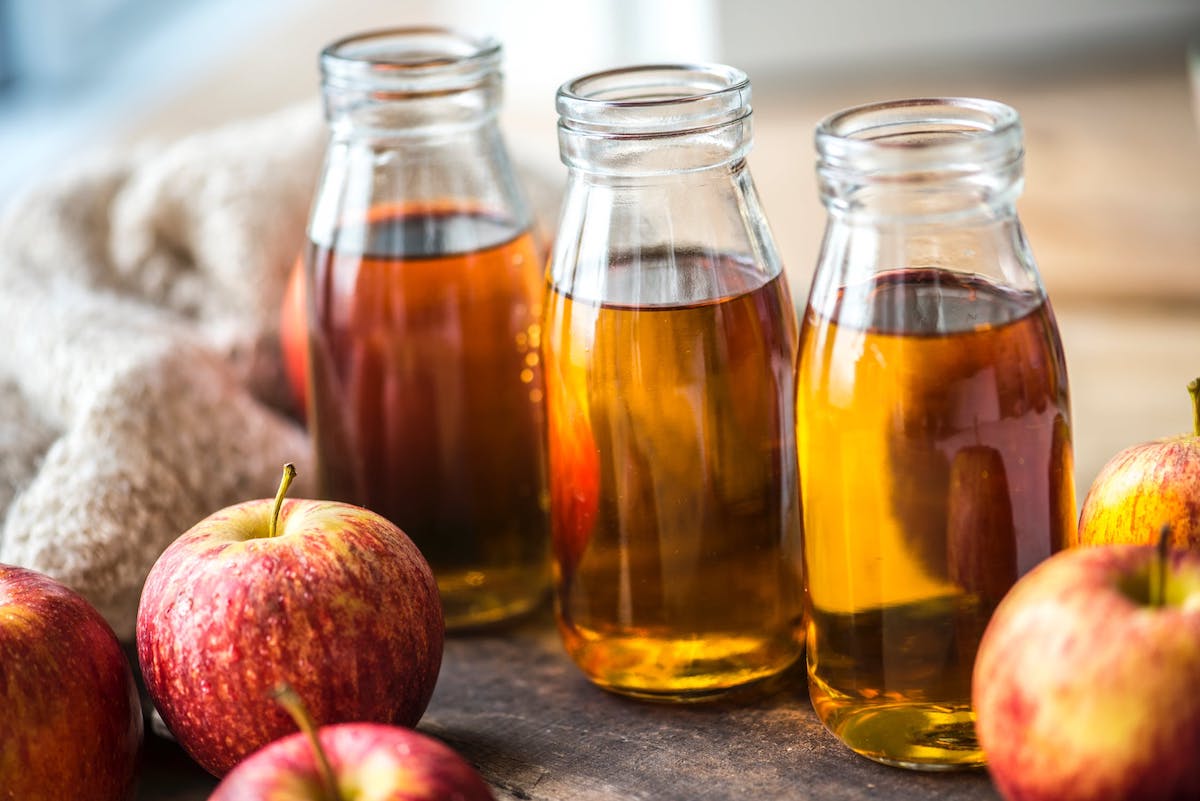
Apple cider vinegar has been promoted online as a natural chemical exfoliant that can clear away dead skin cells, bacteria, and dirt, promising to deliver clear, bright, and glowing skin.
Such claims, combined with its low cost and many people’s preference for using natural remedies, have led to countless experiments with using ACV that have resulted in exacerbated breakouts, irritation, and even scarring.
While there have been anecdotal reports of diluted ACV helping with acne when used as a toner, scientific evidence supporting these claims is lacking.
It’s important to note that ACV is primarily a salad dressing and not a product formulated to be applied on the skin’s surface.
Its strong acidity can cause skin inflammation and damage the skin barrier, potentially leading to more harm than good.
This is mainly due to its highly acidic nature, with a pH of 2.78, which is comparable to professional chemical peels.
However, unlike controlled chemical peels performed by a trained professional, the use of ACV on the skin can lead to unforeseen circumstances, including skin burns and permanent scarring, and for the average person who doesn’t know how to remedy these issues, this may be a dangerous practice that can cost their skin’s health and appearance in the long run.
As such, ACV should not be considered a first-line treatment for acne or any other skin condition and should never be used directly on the skin, no matter how diluted.
Baking Soda For Blackheads
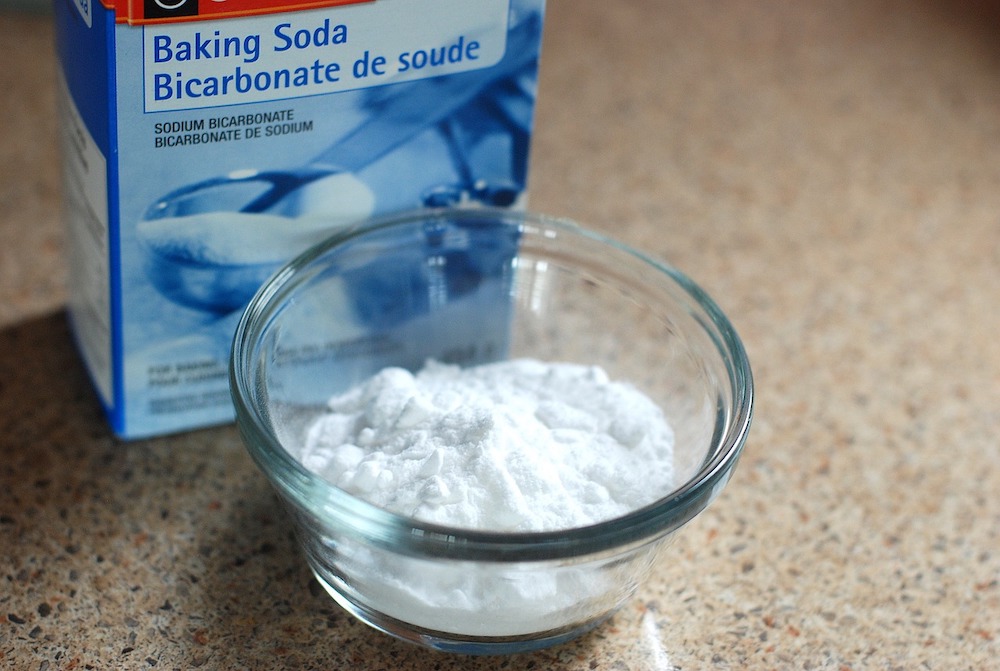
Another popular option when it comes to organic skin care trends is baking soda to get rid of stubborn blackheads, or more specifically sebaceous filaments on the nose.
However, despite its popularity as a ‘natural’ skincare solution, using baking soda to cleanse or exfoliate can lead to more harm than good.
Baking soda has a pH level of 9, making it an alkaline substance.
This high pH can disrupt the skin’s acid mantle, a protective barrier that maintains the skin’s optimal pH level around 4.5-6.2 and keeps harmful bacteria at bay.
Using baking soda can thus neutralize this acidic environment, leaving the skin vulnerable to infections, acne breakouts, and inflammation.
Additionally, baking soda can strip away the skin’s natural oils, causing dryness and irritation.
When used over time, it is known to cause rashes, redness, burning sensations, and even long-term conditions such as dermatitis, particularly in DIY deodorants or on the face.
Therefore, its potential to damage the skin’s protective barrier and disrupt its natural pH balance outweighs any short-term benefits it may appear to offer in removing blackheads.
In conclusion, while baking soda might be effective for neutralizing stomach acid and relieving heartburn, it’s not suitable for skin care and shouldn’t be applied directly to the skin, especially to treat inflammatory conditions that are already contributing to a damaged skin barrier.
RELATED: Can You Use Toothpaste on Acne?
Oils For Hydration
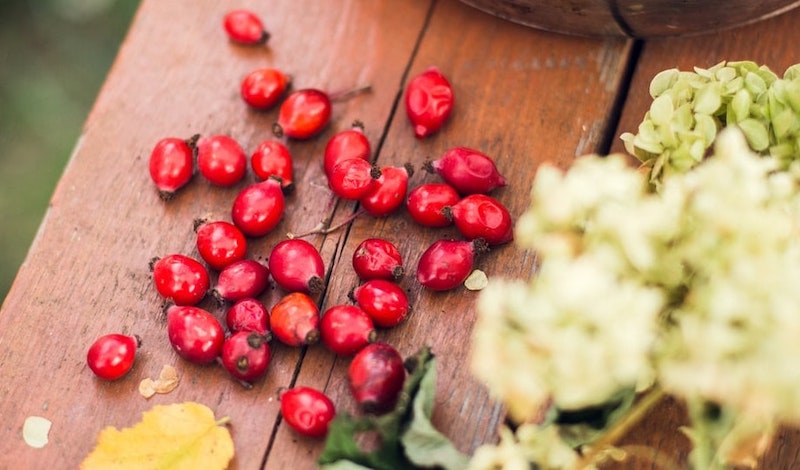
Carrier or natural oils such as avocado, almond, and jojoba have been claimed to improve any skin concern under the sun, from dryness, irritation, insect bites, and even inflammatory conditions such as acne.
These are used to make homemade face masks, essences, and moisturizers, and the same principle applies to them as the above-mentioned coconut oil regarding these claims.
Oils are occlusive substances that create a barrier on the skin’s surface.
However, they won’t moisturize or hydrate the skin because they don’t have humectant properties, which are responsible for drawing moisture into the skin.
You may find some oils, such as rosehip oil, slightly beneficial if you have dry skin with a rough, flaky texture; however, all oils, no matter how lightweight and natural, have the tendency to clog pores and cause acne, even for those with dry skin that’s not usually prone to this inflammatory condition.
Therefore, instead of experimenting with oils, it’s best to opt for moisturizers that contain hydrating ingredients such as hyaluronic acid or glycerin, which have been scientifically proven to provide lasting hydration without clogging pores.
Additionally, moisturizers containing ceramides, cholesterol, and fatty acids can help restore the skin’s barrier function, making it more resistant to external irritants and retaining moisture in the long run.
These products are less likely to cause skin irritation and can be tailored to address specific skin concerns, making them a safer and more effective option than using oils.
In summary, while oils may provide temporary relief for dry skin by creating a physical barrier to prevent water loss, they are not an essential part of a skincare routine and may cause more harm than good.
Еssential Oils For Acne

Applying essential oils to acne might be one of the worst natural skincare trends that’s relentlessly shared on platforms such as Pinterest.
While some essential oils, such as tea tree oil, have antifungal and antibacterial properties, the logic that these will reduce acne just because it’s a bacterial condition is flawed.
Essential oils in their purest form are highly concentrated plant extracts that can be extremely irritating as these substances are derived from the most potent fragrant part a plant uses to ward off predators.
These oils are known irritants, and if used undiluted, they can cause skin allergies, contact dermatitis, and even chemical burns.
And while you may be thinking that diluting them will do the trick and prevent any adverse effects, this is not always the case, as essential oils are not made the same, so you can never truly know how concentrated the product you are using is and what would be the ideal dilution ratio that will make the “formula” useful without the risk of adverse effects.
Furthermore, many essential oils contain compounds that turn toxic when exposed to sunlight, making the skin more prone to sunburns, blisters, and even permanent damage, such as scarring.
Finally, essential oils can be comedogenic, meaning they can clog pores, exacerbate existing breakouts, and cause more acne in the future.
They also don’t help reduce the overgrowth of the acne-causing bacteria as most essential oils are volatile, meaning they evaporate quickly when exposed to air.
This limits their contact time with the skin and, consequently, their ability to act on acne-causing bacteria.
Therefore, besides not being scientifically proven to treat acne, essential oils pose various risks and should not be used in DIY skincare recipes or applied directly to the skin for any purpose.
Homemade Masks
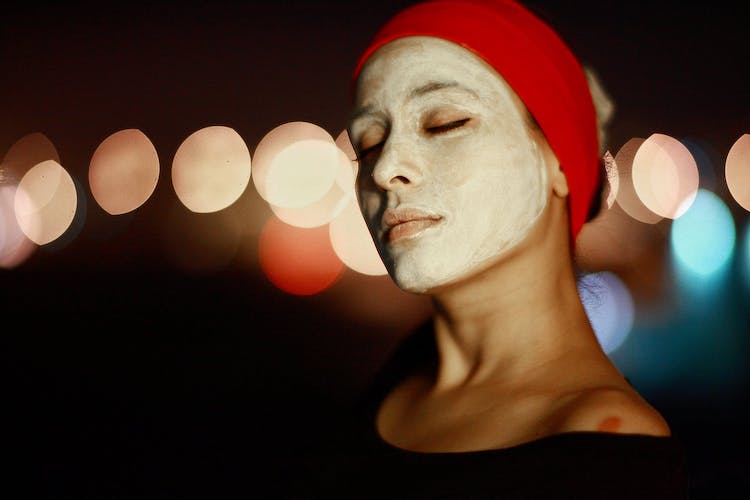
While homemade face masks made from common kitchen ingredients like bananas, avocados, honey, or eggs may seem like a convenient and natural skincare trend, their effectiveness and safety are questionable at best.
The primary reason to be skeptical is that food is not formulated for topical use on the skin.
The nutrients in various food items are only useful if ingested and metabolized by our bodies, not applied directly to our skin.
This implies that while these foods might be beneficial when consumed, they may not provide significant or long-term benefits when used as a face mask.
Our skin serves as a protective barrier against environmental factors like dirt, pollution, and bacteria.
To effectively address skincare concerns, products need to contain ingredients specifically formulated to penetrate this barrier and work on a cellular level.
Food items, however, do not possess these properties.
Furthermore, applying food to your skin can potentially introduce new problems.
Certain food items can cause allergic reactions or skin irritations.
Others might attract bacteria, leading to breakouts or infections.
Instead of applying food items to your skin, consider incorporating them into your diet.
Consuming nutrient-rich food can provide your body with the vitamins, antioxidants, and other nutrients it needs to maintain healthy skin from the inside out.
In conclusion, while homemade face masks may seem like an attractive, cost-effective skincare trend, they lack the scientific backing and formulation expertise that comes with professionally developed skincare products.
For optimal skincare results, it’s recommended to use products specifically designed for this purpose.
RELATED: The Best Exfoliating Face Masks
Scrubs
The use of facial scrubs is another concerning skincare trend that has the potential to damage the skin long-term.
This extends even to homemade scrubs, often made with food ingredients like sugar granules or oats.
Facial scrubs are designed to exfoliate the skin, removing dead skin cells to reveal a fresh, vibrant complexion.
However, the problem lies in their abrasive nature.
Scrubs, particularly those made with large granules such as sugar or oats, can cause inflammation when rubbed across the skin.
This mechanical form of exfoliation can be damaging and cause microtears in the skin, which can compromise its protective barrier.
Furthermore, these microtears can become gateways for bacteria and other contaminants, exacerbating conditions like acne.
By spreading bacteria and pus from acne across the face, scrubs may inadvertently prolong the healing process and increase the risk of infections and further breakouts.
Additionally, chronic inflammation caused by regular use of facial scrubs can lead to more serious skin problems over time.
These include post-inflammatory hyperpigmentation, post-inflammatory erythema, and tissue damage that can be difficult to treat, even with advanced procedures like laser treatments.
While some sources suggest that scrubs can have benefits when used correctly, the potential harm they can cause makes them a risky choice, especially for those with sensitive or acne-prone skin.
Instead, gentle chemical exfoliants, such as alpha-hydroxy acids (AHAs) or beta-hydroxy acids (BHAs), are often recommended as safer and more effective alternatives.
In conclusion, while facial scrubs might seem like an attractive skincare solution that delivers instant results, their potential to cause skin damage suggests that this is a trend best avoided.

My name is Simone and I am a certified skin specialist. I created this website to teach my readers how to take great care of their skin and I also like to occasionally share my honest opinions on skincare products I’ve tried. You can learn more about me here.
